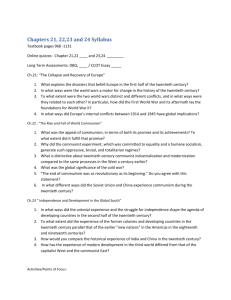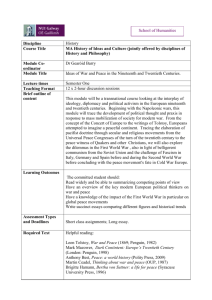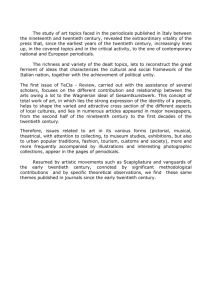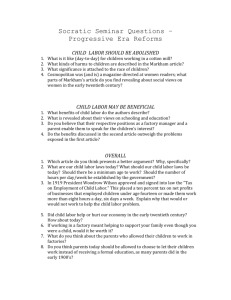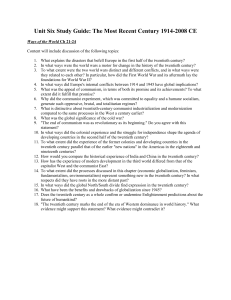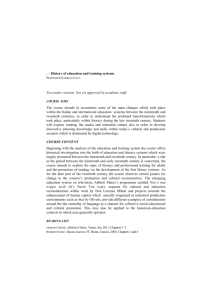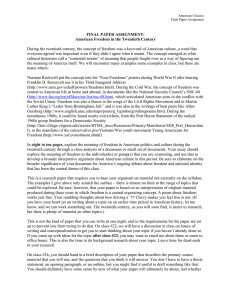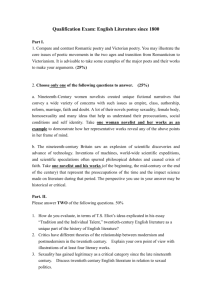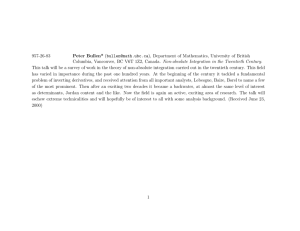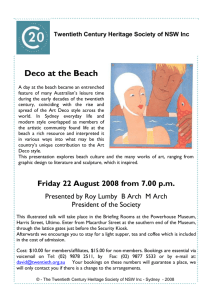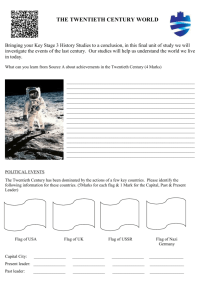Twentieth Century Europe
advertisement
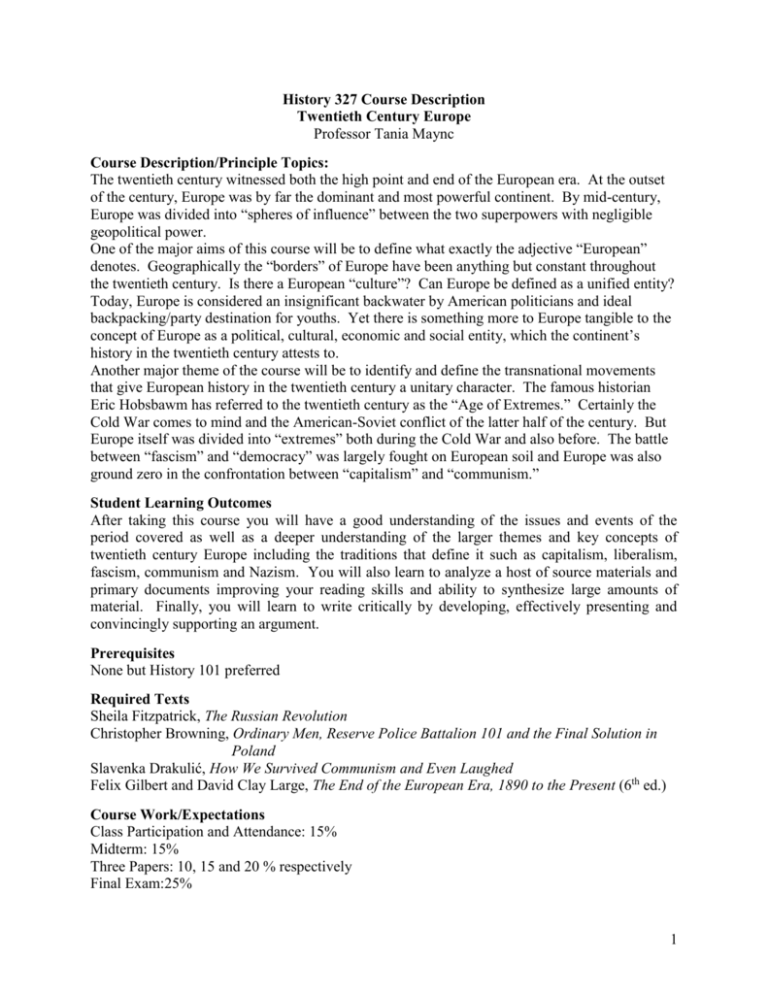
History 327 Course Description Twentieth Century Europe Professor Tania Maync Course Description/Principle Topics: The twentieth century witnessed both the high point and end of the European era. At the outset of the century, Europe was by far the dominant and most powerful continent. By mid-century, Europe was divided into “spheres of influence” between the two superpowers with negligible geopolitical power. One of the major aims of this course will be to define what exactly the adjective “European” denotes. Geographically the “borders” of Europe have been anything but constant throughout the twentieth century. Is there a European “culture”? Can Europe be defined as a unified entity? Today, Europe is considered an insignificant backwater by American politicians and ideal backpacking/party destination for youths. Yet there is something more to Europe tangible to the concept of Europe as a political, cultural, economic and social entity, which the continent’s history in the twentieth century attests to. Another major theme of the course will be to identify and define the transnational movements that give European history in the twentieth century a unitary character. The famous historian Eric Hobsbawm has referred to the twentieth century as the “Age of Extremes.” Certainly the Cold War comes to mind and the American-Soviet conflict of the latter half of the century. But Europe itself was divided into “extremes” both during the Cold War and also before. The battle between “fascism” and “democracy” was largely fought on European soil and Europe was also ground zero in the confrontation between “capitalism” and “communism.” Student Learning Outcomes After taking this course you will have a good understanding of the issues and events of the period covered as well as a deeper understanding of the larger themes and key concepts of twentieth century Europe including the traditions that define it such as capitalism, liberalism, fascism, communism and Nazism. You will also learn to analyze a host of source materials and primary documents improving your reading skills and ability to synthesize large amounts of material. Finally, you will learn to write critically by developing, effectively presenting and convincingly supporting an argument. Prerequisites None but History 101 preferred Required Texts Sheila Fitzpatrick, The Russian Revolution Christopher Browning, Ordinary Men, Reserve Police Battalion 101 and the Final Solution in Poland Slavenka Drakulić, How We Survived Communism and Even Laughed Felix Gilbert and David Clay Large, The End of the European Era, 1890 to the Present (6th ed.) Course Work/Expectations Class Participation and Attendance: 15% Midterm: 15% Three Papers: 10, 15 and 20 % respectively Final Exam:25% 1
